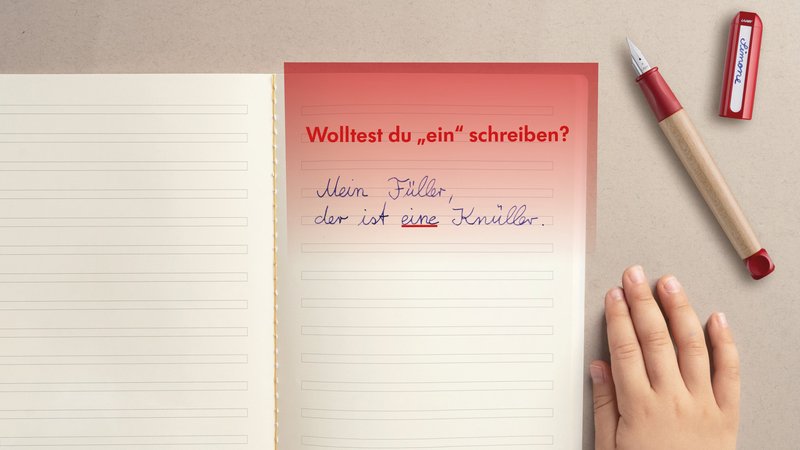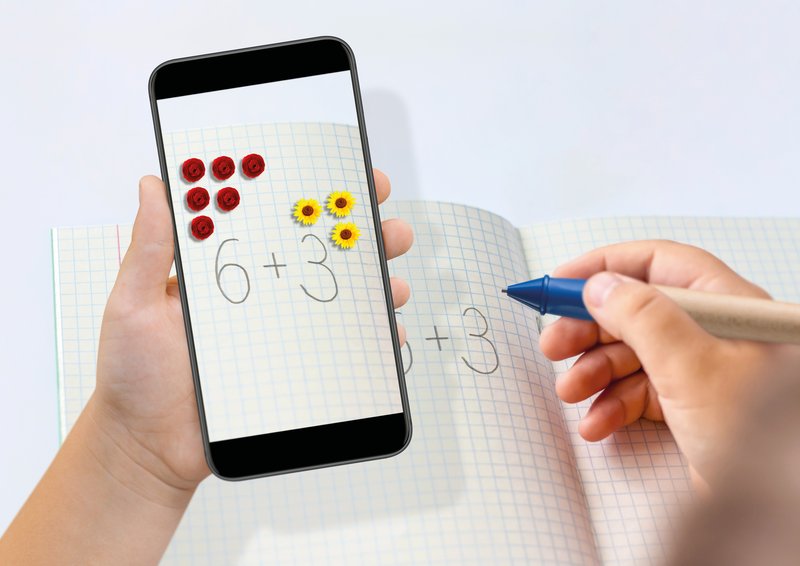The new system will allow students to work with pen and paper as usual, while the learning materials will be augmented with virtual information if necessary. In doing so, the content is to be spatially precisely superimposed on the written text and thus helps to find the right solution. This way, for example, grammatical and spelling errors in the written text can be highlighted or help with math tasks can be displayed. It is planned to make the virtual layer as easy and natural as possible with the help of a smartphone, data glasses or a projector; the suitability of the variants for everyday use is investigated during the project.
“The pen is a familiar tool and thus a user-friendly input method for the augmented reality”, says Dr. Uwe Grünefeld from paluno’s Human-Computer Interaction working group, explaining the project’s approach. “This allows students to learn without distraction and to focus on the actual learning content.”
The support should be adapted to the current needs of the learner. To identify this, the research partners are developing an intelligent pen that uses sensors and artificial intelligence methods to determine a person’s cognitive load and ability to concentrate. “We are eager to see whether this can actually increase learning success”, says Dr. Grünefeld. “If it works, individual learning support can be very helpful not only at home, but also at school.”
The FederleichtLernen project is funded by the German Ministry of Education and Research (BMBF) with around 1. 5 million euros for a period of three years. Approximately 450,000 euros will go to the University of Duisburg-Essen, which coordinates the project. Other partners are Friedrich-Alexander University Erlangen-Nuremberg, TU Dortmund, Weltenmacher GmbH and the Institute for Future Studies and Technology Assessment in Berlin. The project consortium is supported by C. Josef Lamy GmbH and the Gymnasium Heißen from Mülheim an der Ruhr.
Ansprechpartner
Human Computer Interaction (HCI) | +49 201183 - 3298 uwe.gruenefeld@uni-due.de |
Press and Public Relations | +49 201 18-34655 birgit.kremer@paluno.uni-due.de |

